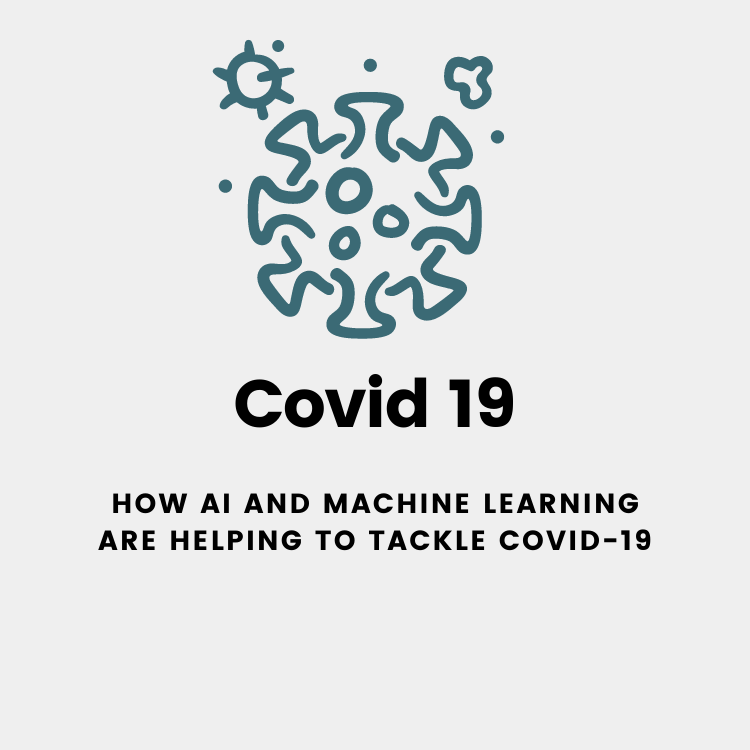Introduction
The outbreak of COVID-19 has been a global shock, and scientists are scrambling to find ways to contain the virus. But could AI and machine learning be part of the solution?
In this article, we explore how these technologies are being used to help track the spread of the virus, develop potential treatments and vaccines, and keep healthcare workers safe.
What is AI and machine learning?
- AI and machine learning are helping to tackle COVID-19 in a number of ways.
- AI is being used to develop new drugs and treatments for COVID-19. Machine learning is being used to predict how the virus will spread and to identify new cases early.
- AI is also being used to create contact tracing apps that can help to track the spread of the virus.
- Overall, AI and machine learning are playing a vital role in the fight against COVID-19.
How AI and machine learning are being used to tackle COVID-19
The outbreak of COVID-19 has resulted in a global health crisis, with countries around the world scrambling to find ways to contain the virus. AI and machine learning are playing a pivotal role in helping to tackle the pandemic, from identifying new cases to tracking the spread of the disease.
One of the most important ways AI is being used to fight COVID-19 is through the development of contact tracing apps. These apps use Bluetooth technology to track who a person has been in contact with, so that if someone tests positive for the virus, their contacts can be quickly alerted and advised to self-isolate.
Machine learning is also being used to develop new drugs and treatments for COVID-19. By analyzing data from patients who have been infected with the virus, researchers are able to identify patterns and trends that could lead to new breakthroughs.
AI is also playing a role in identifying new cases of COVID-19. Using data from CT scans and X-rays, AI algorithms are able to detect early signs of the disease, which can help doctors to diagnose patients sooner.
The use of AI and machine learning in the fight against COVID-19 is still in its early stages, but
The benefits of using AI and machine learning to tackle COVID-19
There is no doubt that AI and machine learning are powerful tools that can be used to tackle many different problems. And, as we face the COVID-19 pandemic, these technologies are being harnessed to help us in the fight against the virus.
One of the ways AI and machine learning are being used is to help track the spread of the virus. By analysing data from a variety of sources, including social media, medical records and travel patterns, AI can help us to map the spread of the virus and identify potential hotspots. This information can then be used to direct resources where they are most needed.
AI is also being used to develop new drugs and treatments for COVID-19. By analysing data from patients who have recovered from the virus, AI can identify potential targets for new drugs and vaccines. And, in some cases, machine learning is being used to design and test new drugs and treatments.
In addition, AI is being used to support contact tracing efforts. By analysing data from phones and other devices, AI can help to identify who has been in contact with someone who has tested positive for COVID-19. This information can then be used to quickly reach out to those
The challenges of using AI and machine learning to tackle COVID-19
The use of AI and machine learning in the fight against COVID-19 has been touted as a game-changer. However, there are many challenges that need to be addressed before these technologies can be deployed effectively.
One of the biggest challenges is the lack of data. AI and machine learning rely on large amounts of data to be effective. However, there is still a lack of data on COVID-19, which makes it difficult to train these systems.
Another challenge is the lack of understanding of how AI and machine learning work. These technologies are still in their early stages of development and there is a lot we don’t know about them. This lack of understanding can make it difficult to deploy these technologies effectively.
Finally, there is a challenge with resources. AI and machine learning require powerful computers and lots of data to work effectively. This can be a challenge for many organizations, especially those in developing countries.
Despite these challenges, AI and machine learning hold great promise for the fight against COVID-19. With more data and more understanding, these technologies could help us to better identify cases, track the spread of the disease, and even develop new treatments.
Conclusion
AI and machine learning are showing great promise in helping to tackle the COVID-19 pandemic. These technologies are being used to develop new treatments and vaccines, track the spread of the disease, and predict future outbreaks. While there is still much work to be done, AI and machine learning are proving to be powerful tools in the fight against COVID-19.

